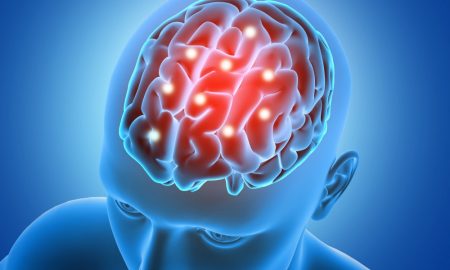
Memory Loss is Caused by More Things Than You Realize

The National Institute on Aging notes that forgetting your daily responsibilities and tasks can also be addressed as a common sign of aging. As people grow older and their bodies change, their body parts, including the brain.
Consequently, one may notice that it takes longer for them to learn new things or remember information as well as they did. They may also lose their glasses constantly. However, everyone is always rushing their way through life hence keeping hundreds of things from your to-do list in mind can be a little tricky. Every ding, reminder pop-up, alarm, checklist keeps us as responsible adults.

Brett Sayles/ Pexels | Memory loss is not rare
Memory loss can also happen because of extremely mind occupying daily routines, mom duties with three kids, and a full-time job. Computer tabs are usually described as a metaphor for our mind, when too many tabs are kept open, it starts lagging, the same idea goes with our mind operations.
Multitasking is given the blame behind memory issues; however, that isn’t an issue. If you can’t remember when to pick up your kids from their friend’s house or when your husband mentioned of an office party later in the day, it isn’t because of memory loss of memory-related diseases, simply put- you weren’t concentrating and had your attention diverted elsewhere.

MART PRODUCTION/ Pexels. | Experts say the foldings on your brain are the result of memories
Here are a few reasons to explain your memory glitches:
- Anxiety or stress
Things that make it harder for you to concentrate and win new information, can eventually lead to memory problems. Anxiety and stress are one of them. Both can deeply interfere with attention and no allow all the formation that you get to be properly processed or stored in your brain. The stress hormone that keeps one revved up also effects the hippocampus, in the same way, worrying about something that may or may not happen has similar effects to the body as stress.
- Depression
One of the most common signs of depression, as shown by many studies, includes a deep sadness, lessening of pleasure in things you normally enjoy, lack of drive, among others. Forgetfulness can also be a dorsign of depression— or a side effect of the condition. A study in which the participants weren’t clinically depressed but still reported many depressions related symptoms. The more symptoms they showed, the more memory issues were reported.
Besides depression, normal ups and down in mood, anxiety, insomnia or over sleeping are also issues faced during perimenopause.

Helena/ Pexels | Your brain is giving you signs, but are you paying attention?
- Lack of sleep
Not getting enough hours of sleep is considered to be one of the greatest unappreciated causes of forgetfulness. Too little sleep can directly cause mood changes and even anxiety, which then contribute to issues with memory. If you are suffering from sleep disorders such as sleep apnea, it’s best for you to consult your doctor and seek out treatment.
- Medications
Tranquilizers, some blood pressure drugs, antidepressants, and some other popular medications can affect memory, usually by causing confusion. Benzodiazepines are known to affect memory, as are a class of drugs called “anticholinergics,” which show up in treatments for stress urinary incontinence, over-the-counter sleep aids, and allergy treatments like Benadryl. Tricyclic antidepressants and certain opioids also deal your memory a blow.
- Alcohol abuse
Substances such as opium, opioids, etc., and alcohol abuse can slow down your central nervous system that affects your memory. Moreover, drug abuse can also shrink your brain and scientists have brought together significant evidence behind this.
7. Underactive thyroid
Hypothyroidism (when your thyroid gland does not produce enough thyroid hormone) causes forgetfulness and fog your brain, along with shrinking the hippocampus of the brain (the area directly involved with long-term and short-term memory).
More inMedicare
-
`
What Is Lüften and Why Should You Do It in Winter?
Proper ventilation is essential for maintaining indoor air quality, especially during colder months. In Germany, a traditional method called lüften has...
February 13, 2025 -
`
How Often Should You Clean Your Yoga Mat? The Complete Guide
Cleaning your yoga mat might not always be top of mind, but it’s essential for your health and well-being. Whether you’re...
February 6, 2025 -
`
7 Common Blood Pressure Mistakes to Avoid for Accurate Readings
Managing your blood pressure is crucial for maintaining heart health, but many people unknowingly make mistakes when measuring it at home....
January 31, 2025 -
`
Types of Milk and Their Health Benefits – A Complete Guide
Milk has long been a staple in many households. Whether it’s poured over cereal, added to coffee, or simply enjoyed on...
January 25, 2025 -
`
Why the Keto Diet Is Not As Healthy As You Assume It to Be
The ketogenic (keto) diet is everywhere, touted as a game-changing plan for fast and effective weight loss. But is keto healthy?...
January 15, 2025 -
`
Are Press-On Nails Worth the Hype?
Getting the perfect manicure often requires a hefty investment of both time and money. However, if you’re looking to achieve a...
January 3, 2025 -
`
How Intense Exercise and Appetite Are Surprisingly Linked
Balancing physical activity and hunger can be challenging, especially when maintaining a healthy lifestyle or managing weight. Exercise is known to...
December 26, 2024 -
`
Our Brain: The Link Between Learning and Mindset
The brain is a complex organ that governs bodily functions but also shapes how we think and act. This interplay raises...
December 18, 2024 -
`
The Top 5 Benefits of Getting a Flu Shot
Getting a flu shot is more than skipping the sniffles. It protects your health in a big way. The flu vaccine...
December 13, 2024















You must be logged in to post a comment Login